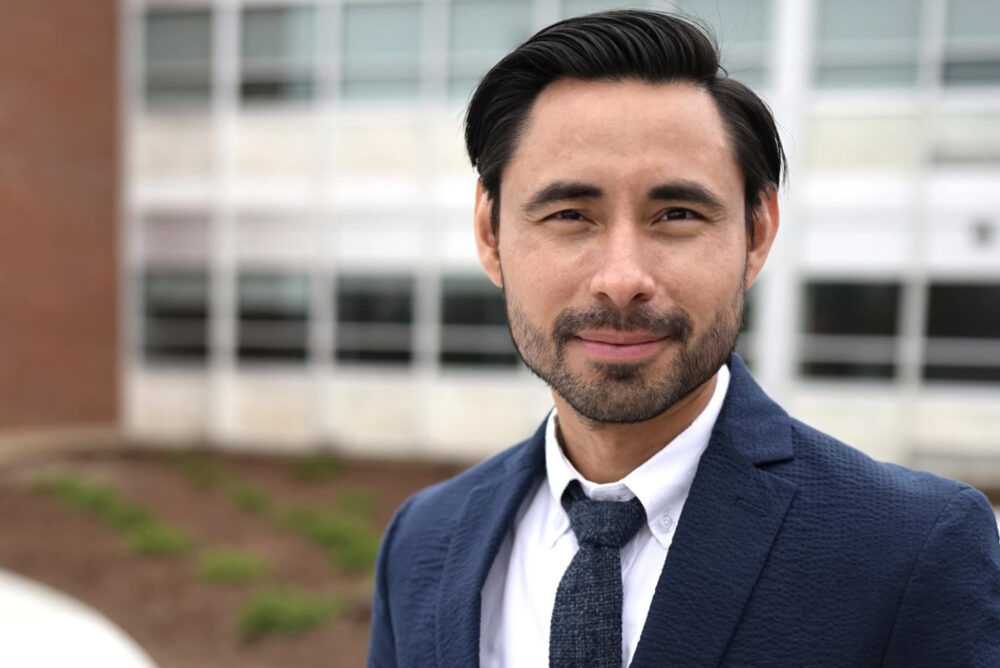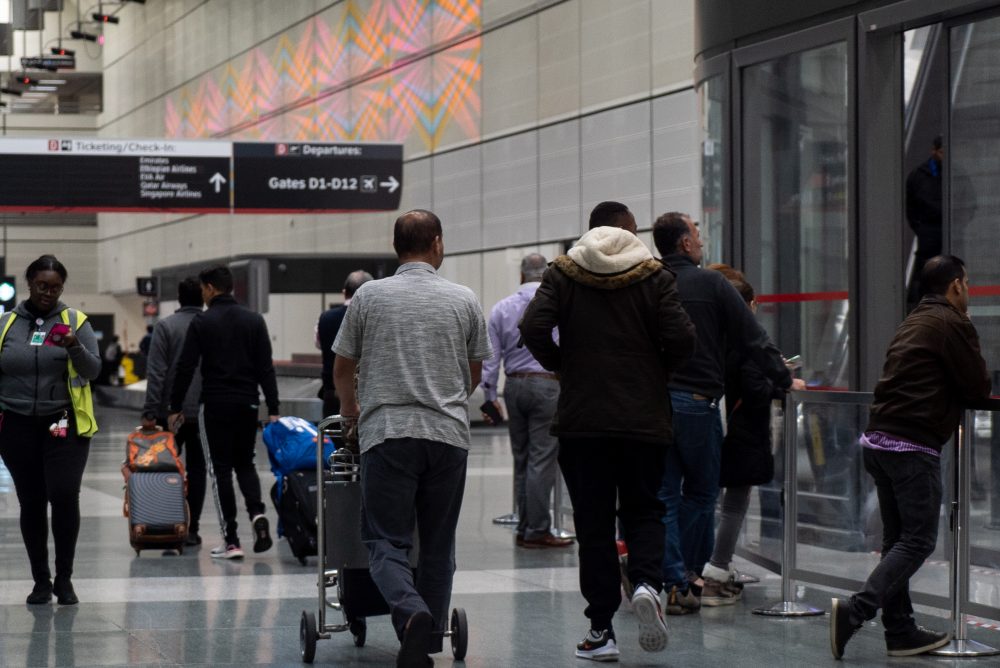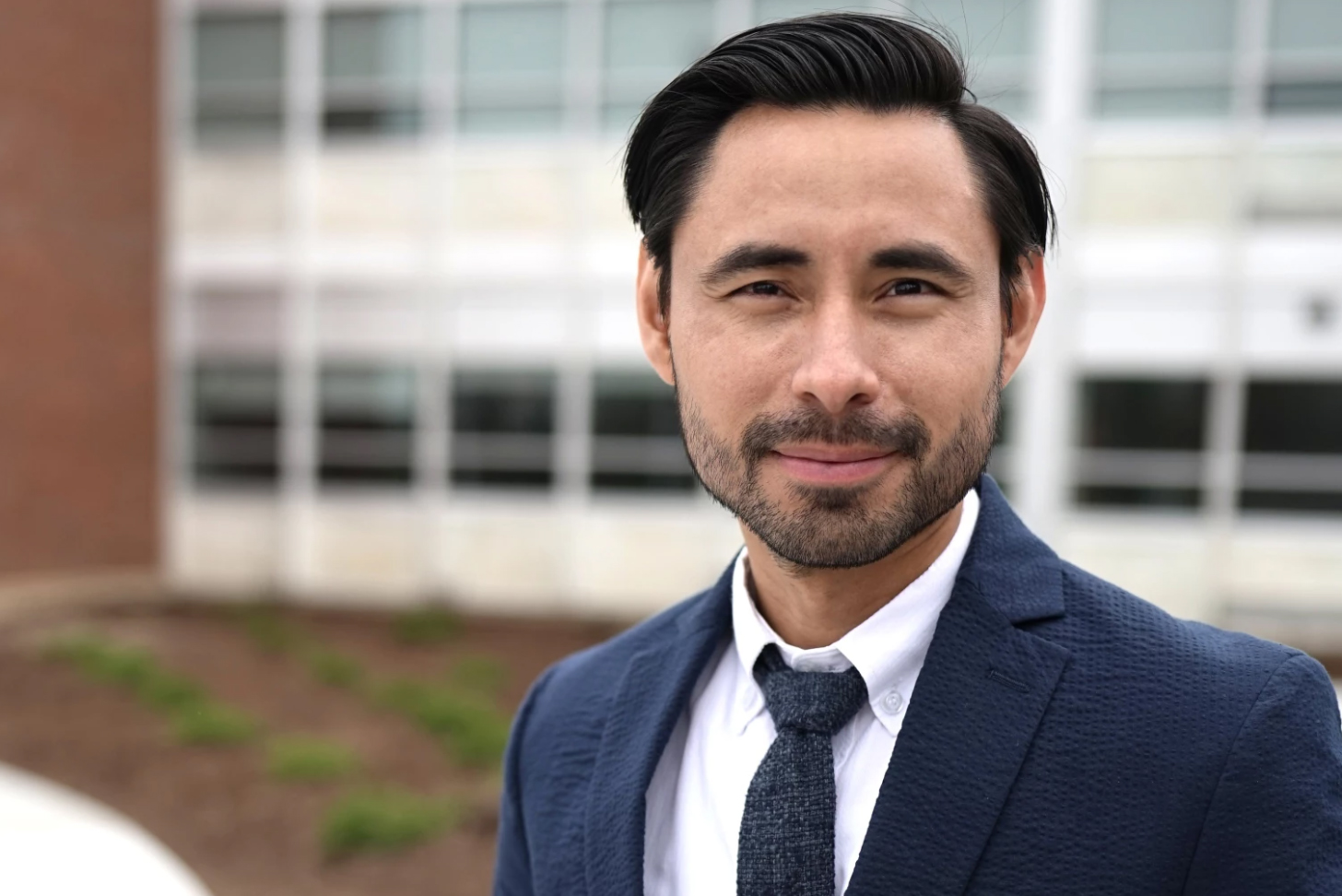
Courtesy: Wilmer Chavarria
Wilmer Chavarria, a school superintendent from Vermont, was detained for several hours this week at Houston’s Bush Intercontinental Airport despite being a naturalized U.S. citizen.
A school superintendent from Vermont is speaking out about his experience being detained for several hours at Houston’s Bush Intercontinental Airport.
Wilmer Chavarria is the superintendent of the Winooski School District in Vermont and is a naturalized U.S. citizen. He says earlier this week he was returning from visiting family in Nicaragua, when he was detained by Customs and Border Protection agents for hours, and his personal electronic devices were searched.
Chavarria told Houston Matters with Craig Cohen he has made this particular journey many times before — including connecting through Houston — without incident.
“I’ve never really been through something like I went through this week,” he said. “And so something clearly has changed.”
Chavarria said he was held for four to five hours and interrogated by numerous people in plain clothes, some of whom never displayed badges or identification. He said he was told he had no constitutional rights as a U.S. citizen at a port of entry, which is incorrect.
“Even when I was not a U.S. citizen, I was never put through something like that,” he said.
Chavarria said the officials questioned whether his marriage was legal, something the federal government would have confirmed and examined during his naturalization process. And they questioned whether he was indeed a school superintendent.
Also, Chavarria did not want to relinquish access to his school-issued phone and laptop, which contained files and information about students. State and federal laws, including FERPA, protect the privacy of certain student data.
“They harassed me relentlessly about it,” he said.
Eventually the officials confiscated those devices saying they would not look at the files containing student data.
“But I have no guarantee that they didn’t, because they did it away from me,” he said. “They took my devices away for a long time, and I don’t know what they did to those devices.”
They were later given back to him.
In a statement, U.S. Customs and Border Patrol spokesman Rusty Payne told Vermont Public the agency “follows strict policies and directives when it comes to searching electronic media.” He added that such searches “are rare,” and “highly regulated.”
Chavarria said the experience was intimidating.
“I just had to act as calm as possible and pretend that everything was normal because clearly every time I attempted to ask a question I was met with a lot of aggression and irritated answers and intimidation,” he said.
By the time he was finally released, Chavarria was able to reunite with his husband. But by then they’d missed their next flight and lost a hotel reservation.

Lucio Vasquez/Houston Public Media
People walking through a terminal at Houston’s George Bush Intercontinental Airport.
Chavarria had previously completed CBP’s Global Entry program, designed for frequent international travelers to move more quickly through security when returning home to the United States. As he boarded a new flight, he learned his status in the program had been revoked, and he received an email saying his Global Entry status had been revoked with a single bullet point saying that he did not meet eligibility requirements.
Chavarria said he still has no answers regarding why he was singled out for interrogation.
“We’re still asking and wondering,” he said. “We have no idea what has changed. We have suspicions. We can take guesses, but we have not been told by the authorities why that was.”
Chavarria said now he’s giving second thought to future international travel, including Nicaragua, where his mother and siblings live. However, in a way, he’s glad this happened to him so he can speak out and alert the immigrant community.
“There are many people who are U.S. citizens who migrated into the United States and have followed the law, have followed the steps, and have acquired citizenship much like me,” he said. “And we used to believe that holding a U.S. passport and being a U.S. citizen guaranteed us certain protections and respecting of certain rights, but no longer, apparently. And I’m very aware of that now.”
